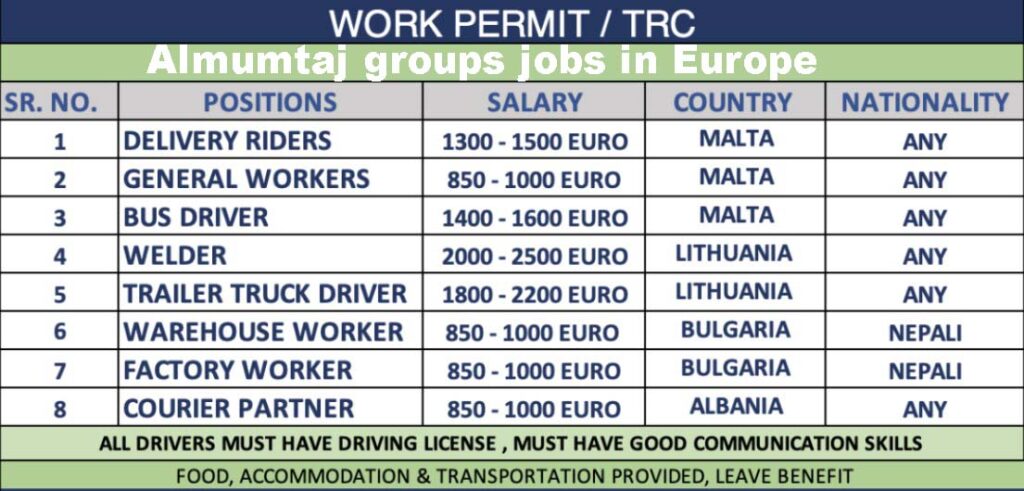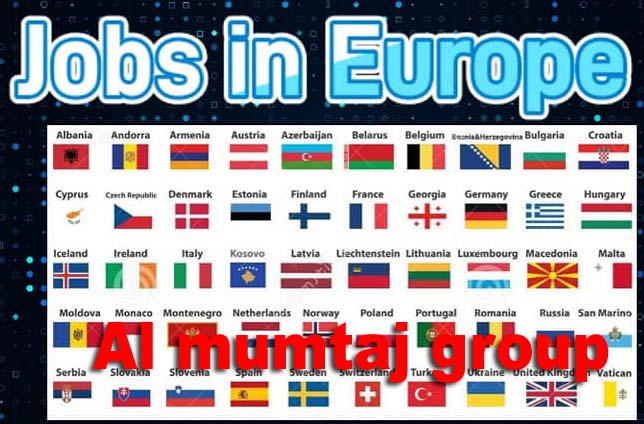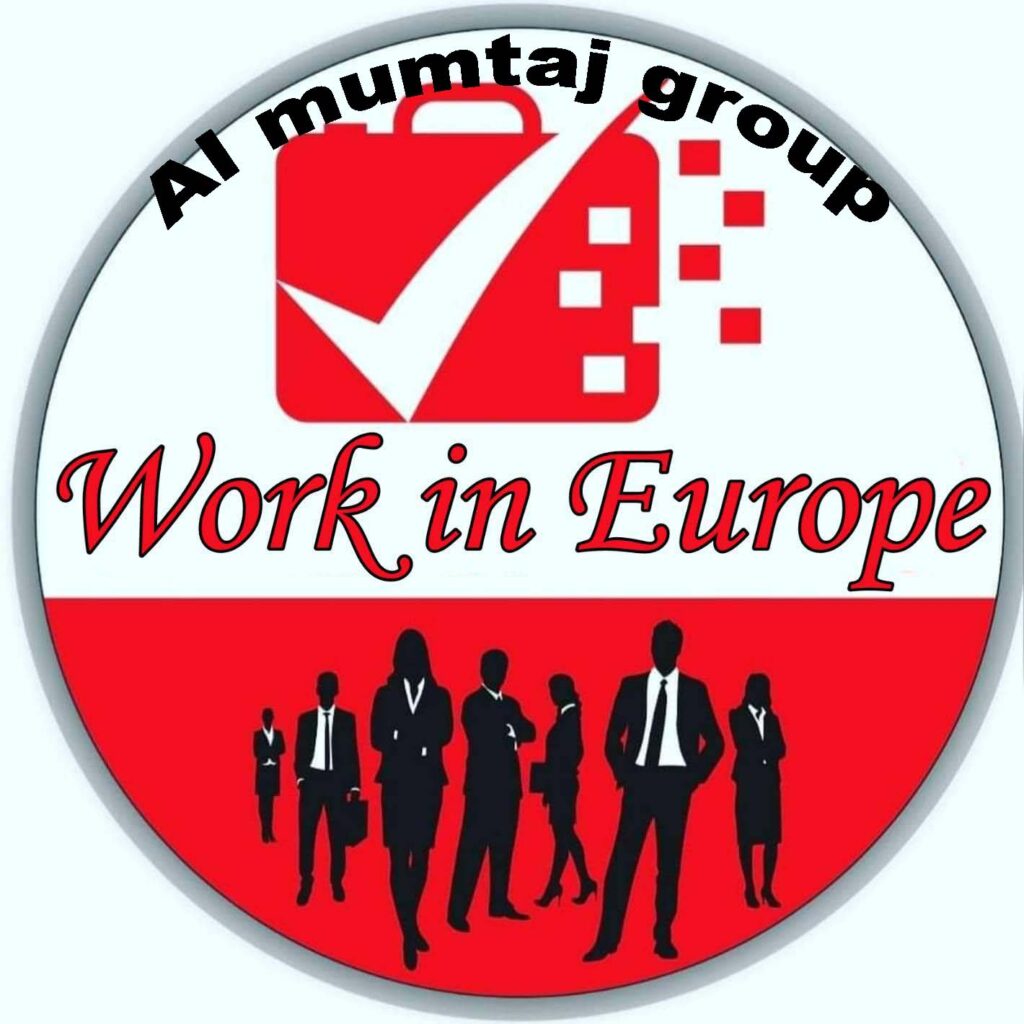Jobs in Different Schengen Countries
Professionals looking for better quality of life, cultural exposure, and greater compensation might find working in Europe intriguing. Thanks to a strong economy and a large spectrum of businesses, Europe has many chances for people to further their careers, particularly in highly sought-after sectors such technology, finance, healthcare, and engineering. This essay addresses the many facets of working in Europe, the possibility for well-paying employment, and how best to use the professional possibilities presented there.
Why study in Europe?
Among all the developed economies around, Europe boasts Germany, the United Kingdom, France, and Switzerland. These nations boasts first-class living conditions, first-rate infrastructure, and dynamic employment markets. Working in Europe mostly benefits:
Higher Salaries and Benefits: Many European nations provide competitive pay, especially in sectors as banking, IT, and healthcare that demand considerable degrees of skill. Along with pension schemes, plenty of paid vacation days, and healthcare coverage, European workers also get
Multinational corporations, startups, research institutes, and professional development hubs throughout centre Europe. Particularly in the financial and technological domains, this offers plenty of chances for professional growth and successful career path.
A strong work-life balance is the main objective for European nations; guidelines assist to prevent staff workers overworking themselves. Many nations provide fascinating vacation allowances, remote work choices, and flexible working hours.
Working in Europe helps you to learn several languages, cuisines, and traditions, thereby improving your awareness of the many civilisations that define Europe.
Top Domains of European Demand
Many European businesses are quite rich, provide stability, fair pay, and possible for growth chances. Focus on these most sought-after industries if you are utilising your material for advertising to maximise your earning potential and guarantee a higher CPC (Cost Per Click) and RPM (Revenue Per Thousand Impressions).
Technology Information (IT)
Rising need for experts in software development, cybersecurity, data science, artificial intelligence, and cloud computing causes the European IT sector to be among the most fast expanding ones. Companies all throughout Europe are strongly supporting digital transformation, and a lack of qualified IT professionals results. Leading IT centres with plenty of prospects include Berlin, London, and Zurich.
Depending on their experience and degree of competence, European IT workers earn anywhere from €50,000 to €120,000 annually.
Top roles call for those of software engineer, data scientist, cybersecurity analyst, IT project manager, and cloud engineer.
Key sites include London (UK), Berlin (Germany), Amsterdam (Netherlands), Zurich (Switzerland), and Stockholm (Sweden).
Banking and Taxes
Leading financial centres from all throughout the globe call Europe home: Zurich, Frankfurt, and London. In investment banking, asset management, financial research, and fintech the finance industry provides highly paid opportunities. As more investors want to diversify their portfolios and as financial institutions grow, the need for financial professionals is increasing.
Depending on their position and region, managers and financial analysts make anywhere from €60,000 to €150,000 annually.
Top roles include those of investment banker, financial analyst, risk manager, portfolio manager, and compliance officer.
Key sites include London (UK), Frankfurt (Germany), Zurich (Switzerland), and Paris (France).
Life sciences and medicine
Healthcare is another high-paying sector in Europe; nations such Germany, Switzerland, and the Netherlands aggressively hunt qualified medical experts. This covers chemists, nurses, physicians, and medical researchers. The ageing population of various European nations is generating demand for healthcare services; consequently, this is a constant career path.
Depending on their field of knowledge and nationality, healthcare workers might make anywhere from €45,000 to €250,000.
Here among the highest jobs are doctor, nurse, medical researcher, chemist, and healthcare management.
Key locations include Amsterdam (Netherlands), Paris (France), Munich (Germany), and Zurich (Switzerland).
Fourth, engineering: Since businesses in Europe include aerospace, automotive, civil, and mechanical engineering, which pays well, engineering is a rather profitable career in Europe. Particularly in places like Munich, Stuttgart, and Turin, many European nations are praised for their superior technical industries.
Although more skilled occupations in aerospace or automotive engineering demand more, engineers in Europe usually make between €50,000 and €120,000 annually.
The highest among mechanical engineers; civil engineers; aeronautical engineers; electrical engineers; software programmers Roles in general
Notable sites include Munich (Germany), Stuttgart (Germany), Turin (Italy), and Geneva (Switzerland).
Environmentalism & Sustainable Energy
As sustainability and the green movement grab front stage in Europe, renewable energy is becoming more and more significant. Leading the drive in renewable energy—especially in wind and solar power—as well as energy efficiency technology are Denmark, Norway, and the Netherlands.
Depending on their position and experience, professionals in renewable energy often make between €45,000 and €100,000 a year.
Among the top jobs are those of environmental manager, energy analyst, sustainability consultant, and renewable energy engineer.
Key locations include Copenhagen (Denmark), Amsterdam (Netherlands), Oslo (Norway), and Barcelona (Spain).
Personalise Your Cover Letter and CV: Your CV should reflect the employment market you are hoping for. Underline relevant experience, underline talents in great demand such languages and technical knowledge, and express simply and clearly.
Creating a professional network in Europe can significantly raise your chances of landing a job paying enough. Go to trade shows, webinars, and local pertinent professional groups.
Language Skills: Although many European firms use English as their working language, learning a local language would surely help you—especially in Germany, France, and Spain.
European Pay Policies and Benefits
Pay ranges in Europe vary greatly based on the nation, sector, and level of experience. Still, nations like Switzerland, Germany, and Luxembourg pay some of Europe’s highest rates. Professionals from fields such IT, banking, and healthcare might expect to make, on average, anything between €50,000 and €120,000 yearly.
Many European nations also provide entire benefit schemes covering:
Healthcare: Many of the public healthcare systems in European nations give complete coverage even if some of them provide extra choices for private health insurance.
Typically more than in many other countries, European employees cherish four to six weeks of paid vacation.
Most European nations have required pension plans; many companies help to pay for these retirement savings.
Many nations have friendly laws enabling men as well as women to take time off after child delivery.
Professionals looking for a higher quality of life, career development, and high-paying employment now have numerous chances working in Europe. Targeting high-demand industries, developing your talents, using job portals, recruiting companies, and networking will help you get a well-paying job in Europe and savour all the advantages of working in one of the most developed areas of the planet among the many vibrant sectors on the continent: IT, banking, healthcare, engineering, and renewable energy. For people who want to further their careers in any field—technology, finance, sustainability, or another—Europe is the ideal location.
Job Offers In Europe
Romania
Working in Romania has a range of possibilities in several fields. The nation has a varied economy with a workforce involved in sectors like IT, manufacturing, services, agriculture, and more. If you are considering working in Romania, these salient features should help you:
Technology and Information Technology:
Especially in software development and outsourcing, Romania has a fast expanding IT industry.
Tech hotspots in cities like Cluj-Napoca and Bucharest are well-known, and demand for qualified IT experts is evident.
Share services and outsourcing:
Outsourced services like customer assistance, finance, and IT outsourcing are very sought after in Romania.
Shared service centres for several global corporations have been established in Romania.
Manufacturer:
Particularly in industries like electronics, equipment, and automotive, manufacturing is quite important for the Romanian economy.
Romania has industrial facilities for companies like Renault and Bosch.
Energie:
Romania has a variety of energy resources, and the sector of industry depends much on them.
There are chances in conventional energy as well as in the expanding renewable energy industry.
Services related to Finance:
With prospects in banking, insurance, and financial consultancy, Romania has a well established banking and financial services industry.
In agriculture:
An major industry in Romania, agriculture offers chances in agribusiness, food production, and farming.
Hospitality and tourism:
Rich in both natural and cultural legacy, Romania draws visitors. Within the travel and hospitality industry, jobs range from hotel management to tour guide to restaurant operations.
Language Proficiency:
Particularly in business and IT, English is quite common. Knowing Romanian, nevertheless, may help, particularly for positions requiring direct local contact.
Works Culture:
The industry and business may affect the work culture in Romania. It’s professional generally, and devotion and timeliness are highly valued.
Price of Living:
Generally speaking, Romanian living expenses are less than those of several Western European nations. For expatriates, this might make the place appealing.
Legal Thought:
Make sure you are aware of the legal requirements for working in Romania, including, if relevant, residency and work permits.
Drivers Jobs In Poland
If you would like driving employment in Poland, there are many possibilities in many different fields. These are some typical forms of driver employment and industries where you may get such chances:
Logistically and transportationally:
Many Polish firms need drivers to move products and supplies. This covers delivery drivers for local distribution as well as long-distance transportation truck drivers.
Deliveries & Courier Services:
As e-commerce expands, delivery drivers are more in demand to move goods to consumers’ homes or businesses.
Ride-sharing programs:
Operating in Polish cities, websites like Uber and Bolt provide people chances to work as ride-sharing service drivers.
Public mobility:
Buses and trams run by municipalities and private businesses in Polish cities, therefore generating employment for bus and tram drivers.
Taxi Resources:
App-based taxi platforms and conventional taxi companies provide people chances to operate as drivers of taxis.
Industry & Construction:
Some businesses, like manufacturing and construction, could call for drivers to move persons, tools, or supplies.
School and tour bus:
There are chances for those who want to drive tour buses or school buses for businesses that focus on travel or transportation for educational purposes.
Ambulance Operations:
Emergency medical services can have opportunities for drivers of ambulances bringing patients to hospitals.
garbage management:
Businesses engaged in rubbish collecting and disposal might have vacancies for drivers in charge of moving waste to disposal locations.
Specialised Travel:
Some businesses, such the automotive industry, could need speciality drivers to move vehicles or other particular goods.
Working In Croatia
Working in Croatia is a unique experience in a nation renowned for its stunning scenery, rich legacy, and active culture. If you would like to work in Croatia, below are some salient features to give thought:
Work Authorisation:
Generally speaking, you usually don’t need a work permit if you live in an EU/EEA nation to be working in Croatia. If you are from a non-EU/EEA nation, however, you will probably require a work permit and your company should help you get one.
Career Prospects:
Key industries include tourism, information technology, agriculture, and services define the varied job prospects in Croatia. Especially in the summer, tourism is a big business.
English:
Although many Croatians speak English, particularly in cities and tourist sites, having a basic knowledge of Croatian may help in daily life and business. Croatian is the official language.
Travel and Hospitality:
Given Croatia’s appeal as a travel destination, the hotel and tourism industry offers prospects. Jobs range from hotel management to restaurant operations to tour guiding.
Technology and Information Technology:
Croatia has a developing IT industry with chances for professionals in connected sectors, software developers, and IT experts.
Food industry and agriculture:
One of the major sectors is agriculture; farming, food manufacturing, and agribusiness provide chances.
Regarding education:
There are opportunities in the education field, including English instruction, particularly in international or language schools.
Legal Aspects:
Make sure you know the legal obligations for employment in Croatia. This covers realising your rights and obligations as an employee and getting the required work licenses.
Living Cost:
Croatia’s cost of living varies; big cities usually have a higher cost of living than rural regions. Find out your local cost of living to help you to create your budget.
In networking:
In Croatia, networking is vital. To grow your network, go to trade shows, network local businesses, and think about joining expat or professional clubs.
Medicine and Insurance:
Learn about Croatia’s healthcare system and give thought to getting health insurance to help with any costs.
Cultural Adjustment:
Spend some time grasping and valuing the local culture. Being culturally aware and flexible will enable you to fit into your new workplace and community.
List of countries for Work permit




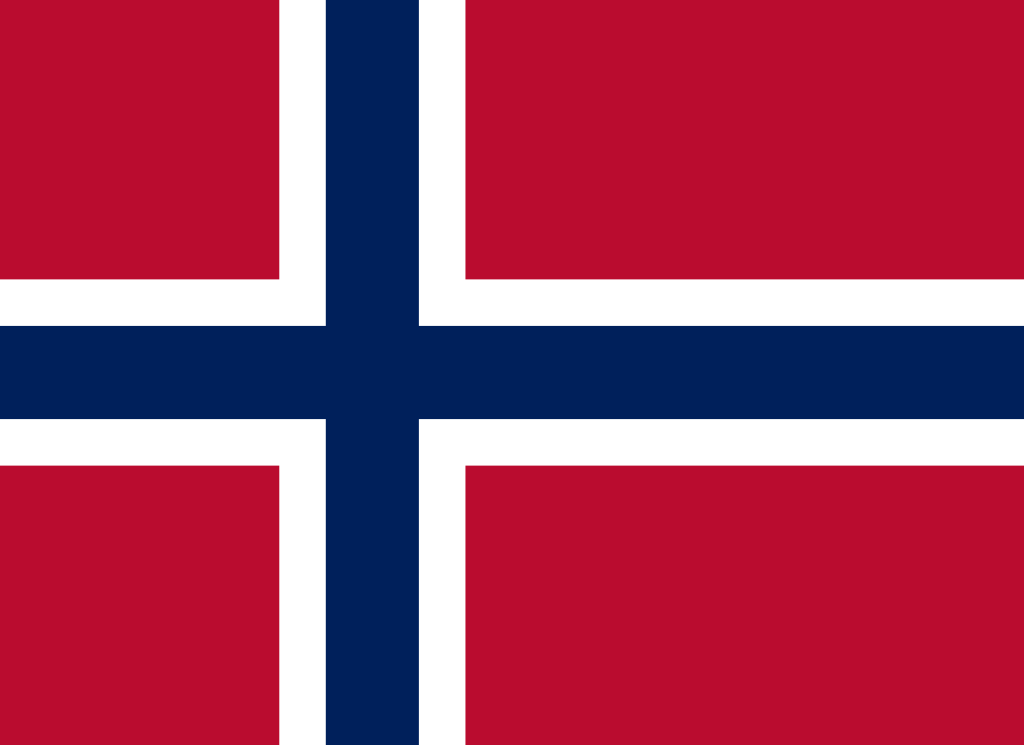
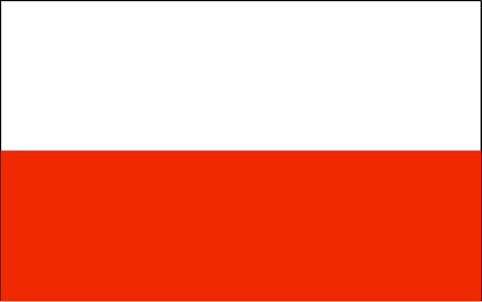



1. Warehouse jobs in Poland (Warsaw)
Total number of vacancies: 120 candidates
Salary: 1500 Euro/Month with Food and Accommodation
Should have experience at least one year
Warehouse worker responsibilities include:
- Preparing and completing warehouse orders for delivery or pickup according to schedule
- Receiving and processing warehouse stock products
- Performing warehouse inventory controls and keeping quality standards high for audits
Job brief
A warehouse in Warsaw needs multiple workers for their warehouse operations and activities. Warehouse worker responsibilities include storing materials, picking, packing, and scanning orders. The goal is to increase efficiency, profitability, and customer satisfaction.
Responsibilities
- Prepare and complete orders for delivery or pickup according to schedule (load, pack, wrap, label, ship)
- Receive and process warehouse stock products (pick, unload, label, store)
- Perform inventory controls and keep quality standards high for audits
- Keep a clean and safe working environment and optimize space utilization
- Complete diary logs into inventory
- Report any discrepancies
- Communicate and cooperate with supervisors and coworkers
- Operate and maintain preventively warehouse vehicles and equipment
- Follow quality service standards and comply with procedures, rules and regulations
Requirements and skills
- Proven working experience as a Warehouse Worker
- Proficiency in inventory software, databases and systems
- Familiarity with modern warehousing practices and methods
- Good organizational and time management skills
- Ability to lift heavy objects
- Current forklift license
- High school degree
2. Cleaning Jobs in Romania (Bucharest)
Total number of vacancies: 100 candidates
Salary: 1000 Euro/Month with Food and Accommodation
Should have experience at least one year
Cleaners responsibilities include:
Job brief
We are looking for a cleaner to take care of our facilities and carry out cleaning and maintenance duties.
The goal is to keep our building in a clean and orderly condition.
Responsibilities
- Clean, stock and supply designated facility areas (dusting, sweeping, vacuuming, mopping, cleaning ceiling vents, restroom cleaning, etc.)
- Perform and document routine inspection and maintenance activities
- Carry out heavy cleansing tasks and special projects
- Notify management of occurring deficiencies or needs for repairs
- Make adjustments and minor repairs
- Stock and maintain supply rooms
- Cooperate with the rest of the staff
- Follow all health and safety regulations
Requirements and skills
- Proven working experience as a Cleaner
- Ability to handle heavy equipment and machinery
- Knowledge of cleaning chemicals and supplies
- Familiarity with Material Safety Data Sheets
- Integrity
- High school degree


